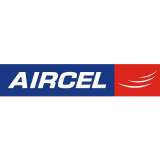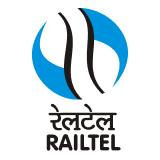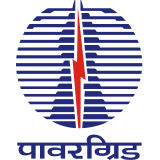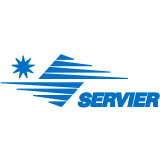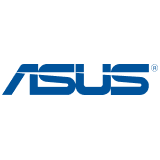OUR USE OF COOKIES AND OTHER TRACKING MECHANISMS
Cookies are pieces of information that a web site transfers to an individual’s computer for record-keeping purposes. Cookies may make your use of the Website easier by saving your preferences while you are at the Website. Microscan never save passwords or credit card information in cookies. Web beacons are electronic images that allow a web site to count users who have visited that page or to access certain cookies. Web beacons may also be used in HTML-formatted email messages in order to determine which email messages were opened and to note whether a message was acted upon. Cookies and beacons allow Microscan to determine which areas of the Website are visited most often. Improvements and updates to the Website may then be based on such data as total number of visitors and pages viewed. Visitors to the Website always have the option of disabling cookies by changing their browser preferences. Although most browsers are initially set up to accept cookies, you can change your browser preferences to refuse all cookies or indicate when a cookie is being sent. Please note that some functions of the Website may not work properly or may be considerably slower if you refuse cookies. We and our 3rd party service providers use cookies, web beacons as well as other tracking mechanisms such as GIFs or pixel tags, to track information about your use of our websites or services and to improve our Site and Services, for advertising purposes (including to evaluate the success of our advertisements).
STANDARD USES FOR BROWSER COOKIES
Website servers set cookies to help authenticate the user if the user logs in to a secure area of the website. Login information is stored in a cookie so the user can enter and leave the website without having to re-enter the same authentication information over and over. Session Cookies are also used by the server to store information about user page activities so users can easily pick up where they left off on the server’s pages. By default, web pages really don’t have any ‘memory’. Cookies tell the server what pages to show the user so the user doesn’t have to remember or start navigating the site all over again. Cookies act as a sort of “bookmark” within the site. Similarly, cookies can store ordering information needed to make shopping carts work instead of forcing the user to remember all the items the user put in the shopping cart. Persistent or tracking Cookies are also employed to store user preferences. Many websites allow the user to customize how information is presented through site layouts or themes. These changes make the site easier to navigate and/or lets user leave a part of the user’s “personality” at the site. For Information on session and persistent and tracking cookies.
Advantages of cookies are
- Remembering the details as provided by the user.
- Remembering user preferences.
- Helping improve the website.
- Cookies can be deleted by the visitor.
- Cookies can be blocked by changing browser setting.
- Cookies cannot carry any threat to the visitor’s device.
COOKIE SECURITY AND PRIVACY ISSUES
Cookies are NOT viruses. Cookies use a plain text format. They are not compiled pieces of code so they cannot be executed nor are they self-executing. Accordingly, they cannot make copies of themselves and spread to other networks to execute and replicate again. Since they cannot perform these functions, they fall outside the standard virus definition. Cookies CAN be used for malicious purposes though. Since they store information about a user’s browsing preferences and history, both on a specific site and browsing among several sites, cookies can be used to act as a form of spyware. Many anti-spyware products are well aware of this problem and routinely flag cookies as candidates for deletion after standard virus and/or spyware scans. The way responsible and ethical web developers deal with privacy issues caused by cookie tracking is by including clear descriptions of how cookies are deployed on their site. If you are a web developer and need advice on implementation of cookies and a privacy policy, you can contact us by the enquiry form at the bottom of the page. These privacy policies should explain what kind of information is collected and how the information is used. Most browsers have built in privacy settings that provide differing levels of cookie acceptance, expiration time, and disposal after a user has visited a particular site. Backing up your computer can give you the peace of mind that your files are safe.
OTHER COOKIE-BASED THREATS
Since identity protection is highly valued and is every internet users right, it pays to be aware of what threat cookies can pose. As cookies are transmitted back and forth between a browser and website, if an attacker or unauthorized person gets in between the data transmission, the sensitive cookie information can be intercepted. Although relatively rare, this can happen if the browser is connecting to the server using an unencrypted network like a non-secured Wi-Fi channel. Internet security is only attainable if you regularly use an anti-virus protection program. Other cookie-based attacks involve exploiting faulty cookie-setting systems on servers. If a website doesn’t require browsers to use encrypted channels only, attackers can use this vulnerability to trick browsers into sending sensitive information over insecure channels. The attackers then siphon off the sensitive data for unauthorized access purposes.
HOW TO DELETE AND BLOCK COOKIES
You can block cookies by using the settings of your web browser, which will allow you to refuse some or all cookies. Please bear in mind, though, that if you chose to block all cookies (including essential cookies) you may not be able to access some or all of this website. Unless you have set your browser settings to refuse cookies, our system will place cookies as soon you visit this site. Turning off or deleting cookies will not prevent this website from identifying the type of device you are using (i.e. a computer or mobile device) and collecting related data. Internet browsers allow you to control your cookie settings, which are usually found in the ‘options’ or ‘preferences’ menu of your browser.
